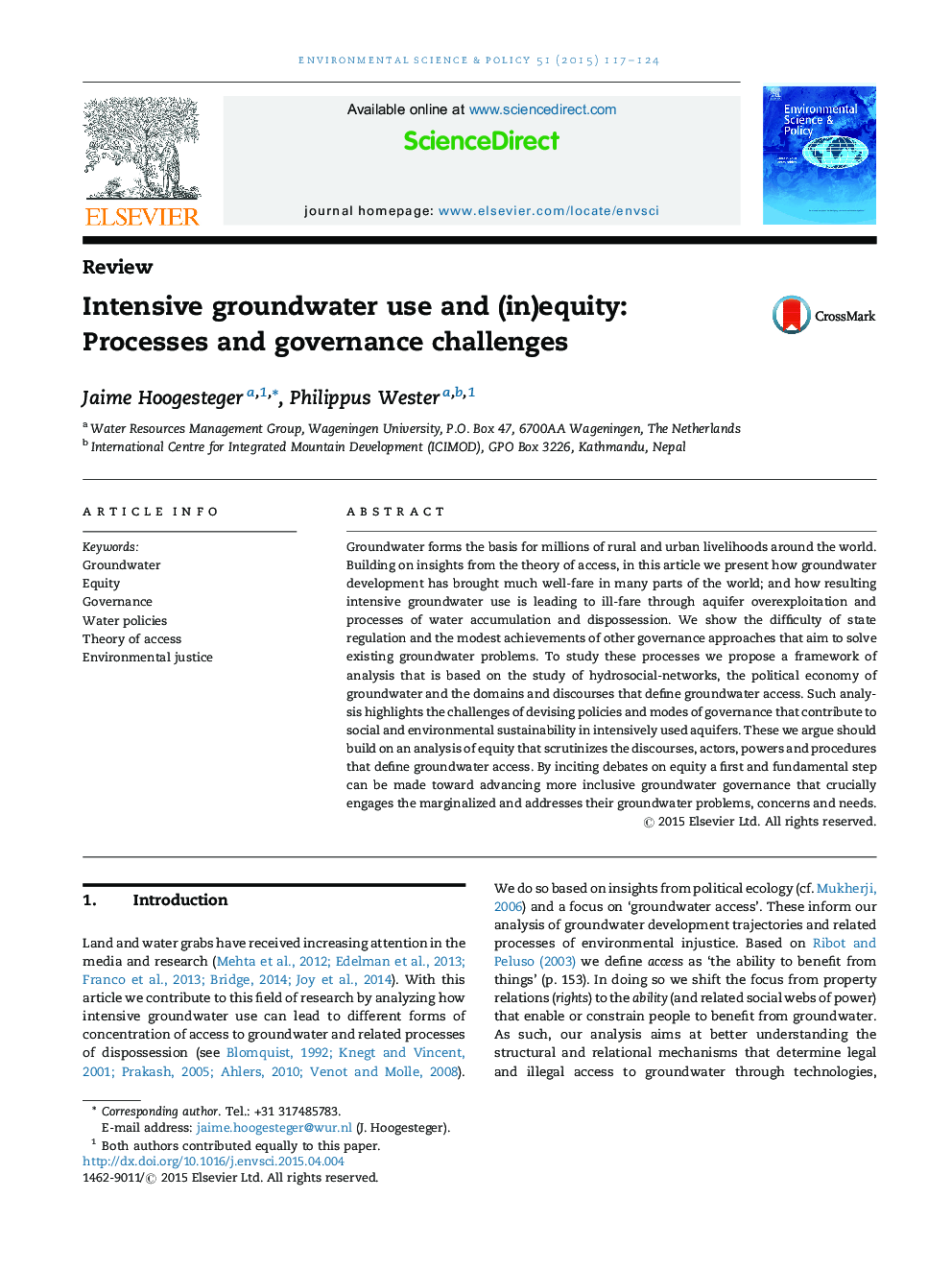| Article ID | Journal | Published Year | Pages | File Type |
|---|---|---|---|---|
| 7467427 | Environmental Science & Policy | 2015 | 8 Pages |
Abstract
Groundwater forms the basis for millions of rural and urban livelihoods around the world. Building on insights from the theory of access, in this article we present how groundwater development has brought much well-fare in many parts of the world; and how resulting intensive groundwater use is leading to ill-fare through aquifer overexploitation and processes of water accumulation and dispossession. We show the difficulty of state regulation and the modest achievements of other governance approaches that aim to solve existing groundwater problems. To study these processes we propose a framework of analysis that is based on the study of hydrosocial-networks, the political economy of groundwater and the domains and discourses that define groundwater access. Such analysis highlights the challenges of devising policies and modes of governance that contribute to social and environmental sustainability in intensively used aquifers. These we argue should build on an analysis of equity that scrutinizes the discourses, actors, powers and procedures that define groundwater access. By inciting debates on equity a first and fundamental step can be made toward advancing more inclusive groundwater governance that crucially engages the marginalized and addresses their groundwater problems, concerns and needs.
Related Topics
Physical Sciences and Engineering
Energy
Renewable Energy, Sustainability and the Environment
Authors
Jaime Hoogesteger, Philippus Wester,
